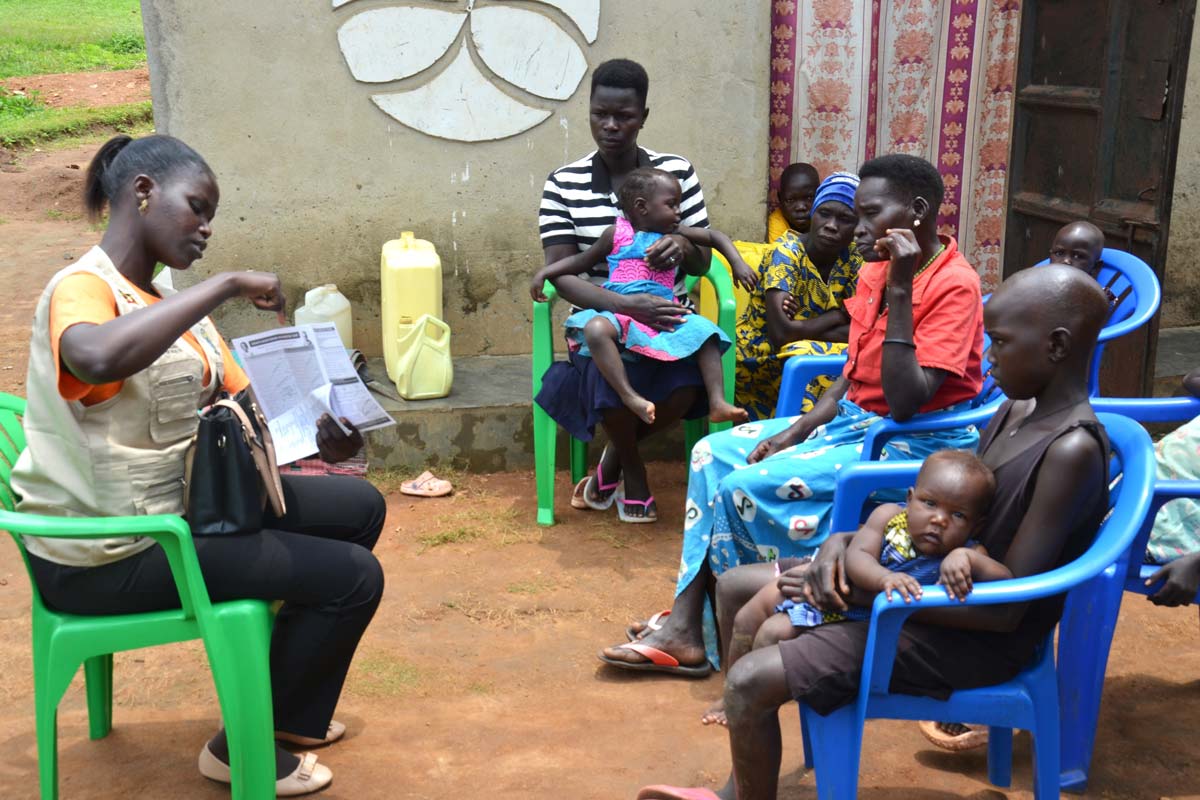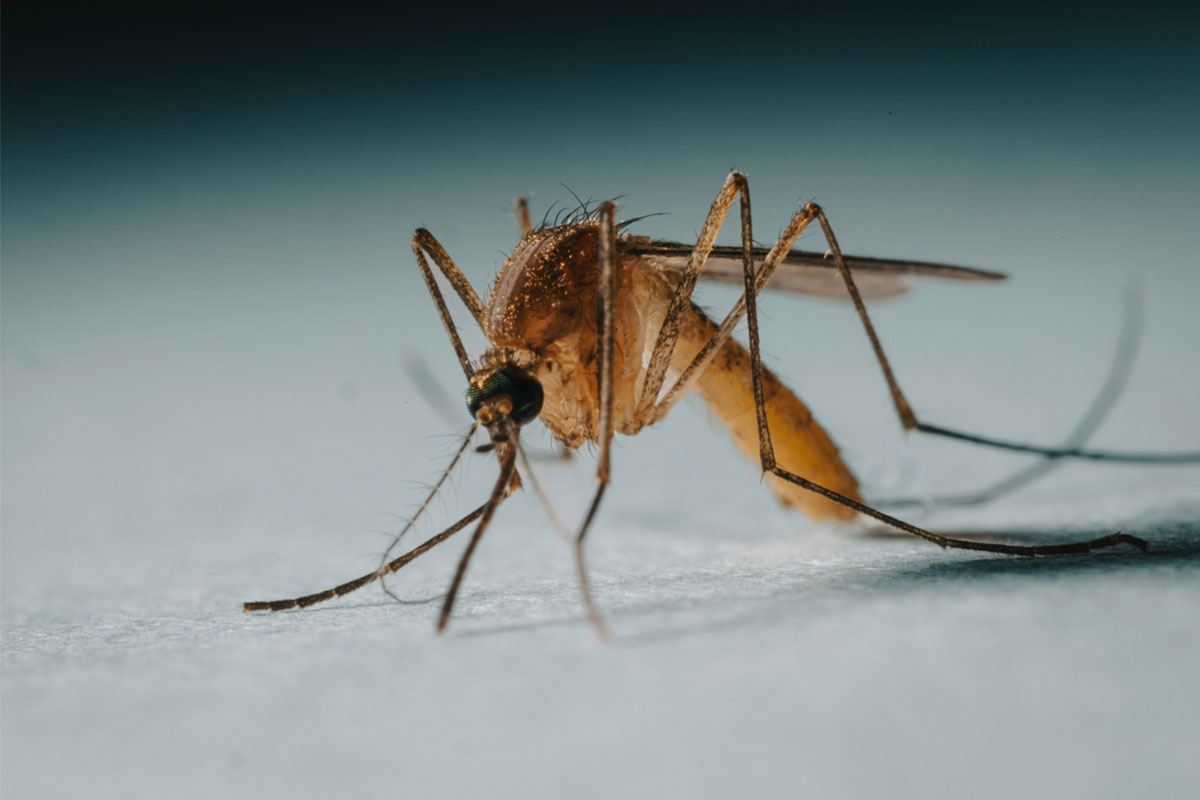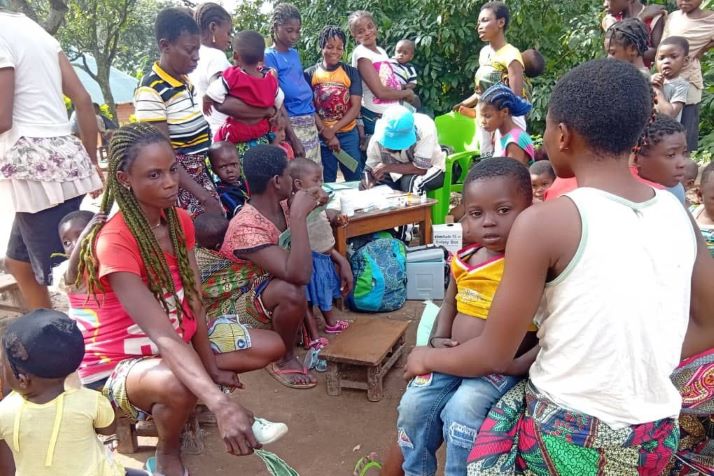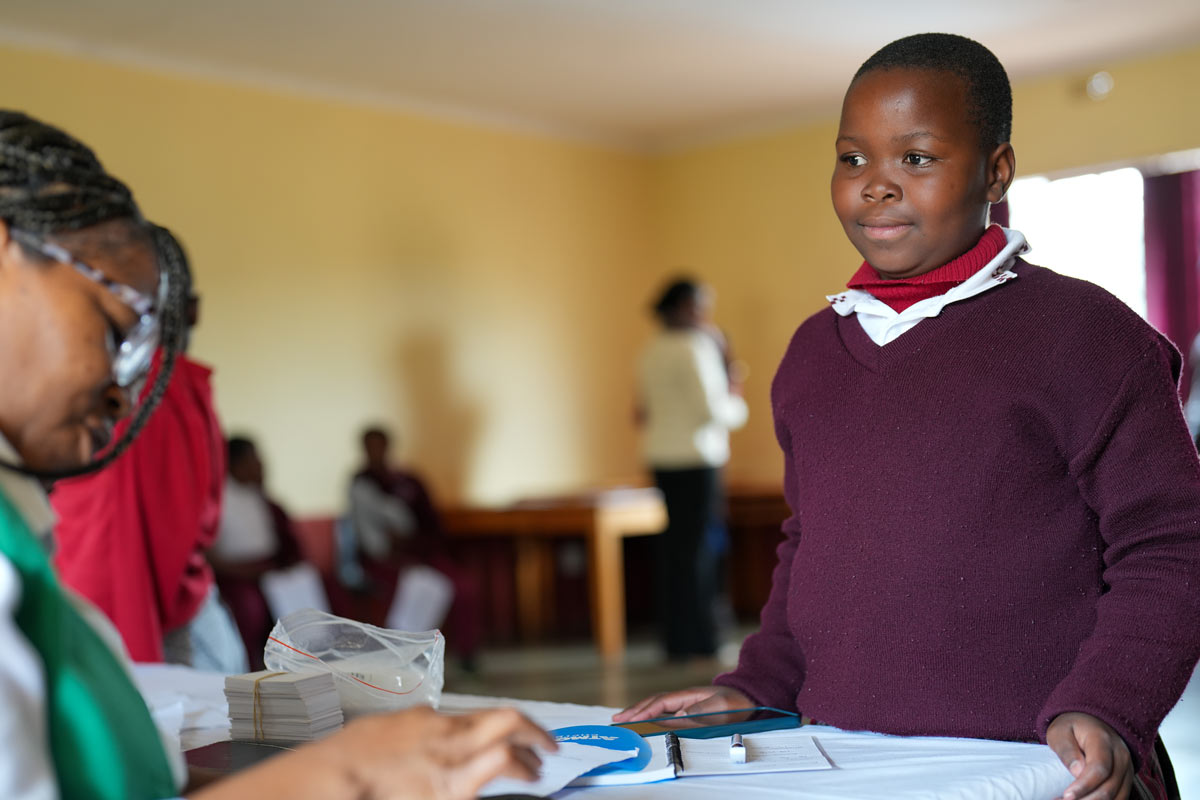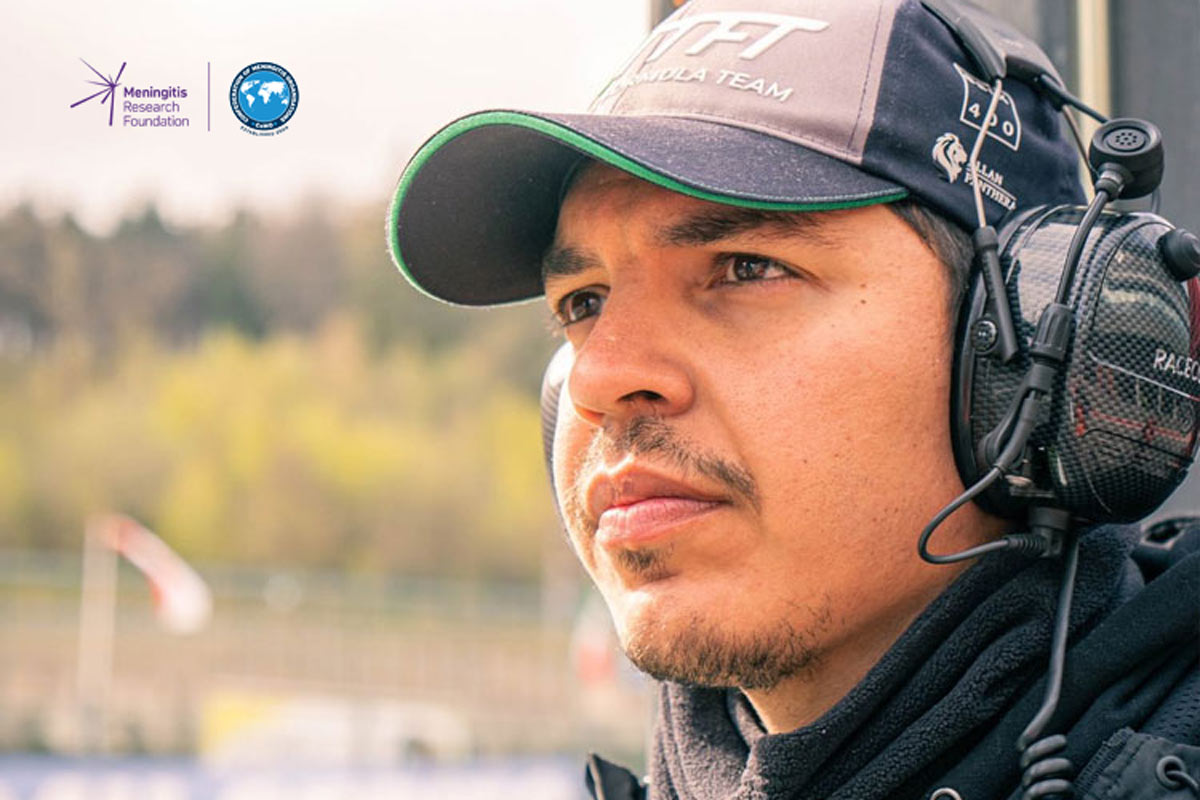The “dramatic” impact of pneumococcal vaccines in Uganda
Cases of pneumonia and meningitis linked to pneumococcal bacteria are down, and so are deaths, and health leaders say the PCV jab is helping build trust in vaccination.
- 2 October 2025
- 7 min read
- by John Musenze
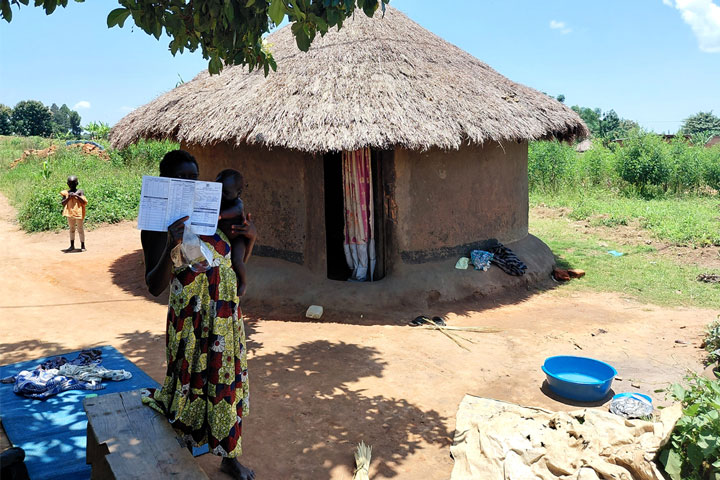
When 32-year-old Monica Dawaru looks at her three children running around her compound in Oceru village, in north-western Uganda’s Arua district, she says she feels the kind of peace she knows her parents’ generation lacked.
“We used to worry so much about meningitis and pneumonia affecting our children. Many children on this village got sick in 2008, but since the introduction of PCV vaccine in our area, we feel much more at ease. All my children received all the four doses and I am no longer scared. I know they are safe, and no one [here] has ever gotten these diseases,” Dawaru told VaccinesWork.
The vaccine in question – the pneumococcal conjugate vaccine (PCV) – protects against infection with pneumococcus bacteria, which can attack various parts of the body. If the bacteria invade the ears or sinuses, they cause otitis or sinusitis; they can also attack the lungs, causing pneumonia, or the lining of the brain or spinal cord, causing meningitis. Bacterial meningitis kills about one in six people who contract it, leaving as many as one in five survivors to contend with lasting complications.
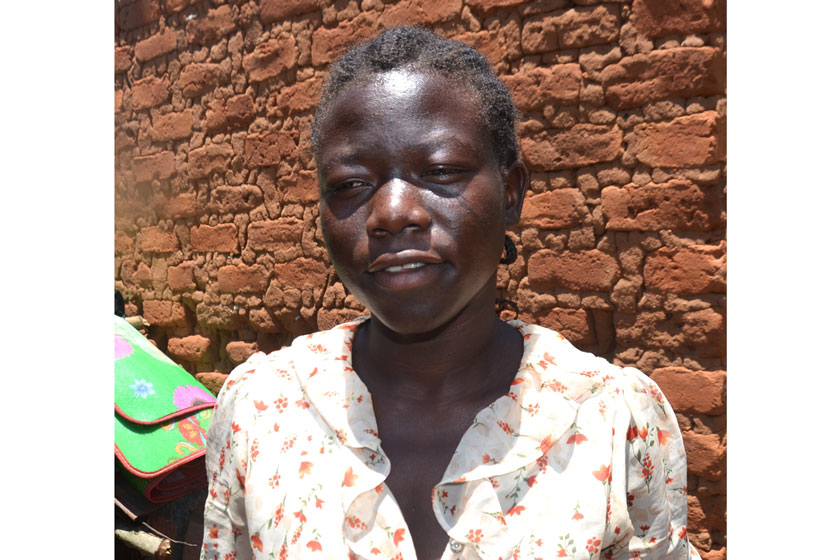
Pneumonia, too, can be deadly. Gloria Eyotaru, also from Oceru village, recounts her own daughter’s brush with pneumonia in infancy, adding she has never needed to go back to the hospital after the completion of her pneumococcal conjugate vaccine (PCV) course. Eyotaru says her child’s illness was mild, and doctors speculated that the fact that she had already received her first dose of PCV may have bolstered her immune system against severe illness.
“Living more than five kilometres from the hospital was hard. It was also expensive in transportation, but doctors told me when the doses are done, she will be well, which really happened because we have not had any illness.”
“Dramatic” – and measurable - improvement
Uganda introduced PCV into its routine vaccination schedule in 2014, and according to a paper recently published in PLOS Global Public Health, declines in pneumonia hospitalisations and mortality “concomitant with increasing PCV coverage” were clearly observable in children under five by 2021.
Another study, this one published in BMC Infectious Diseases, looked at rates of pneumococcal meningitis in children under five in sentinel surveillance hospitals in Kampala City and Gulu District between 2003 and 2022. The researchers found that “the introduction of PCV10 into the routine immunization program resulted in a sustained decline in the incidence of pneumococcal meningitis in the sentinel surveillance host districts.”
Those are changes that Harold Obitre, the In-charge of Vurra Health Centre 111 in Arua district, says he has witnessed at first-hand. He calls the improvement in the 800,000-strong population served by his facility, “dramatic”.
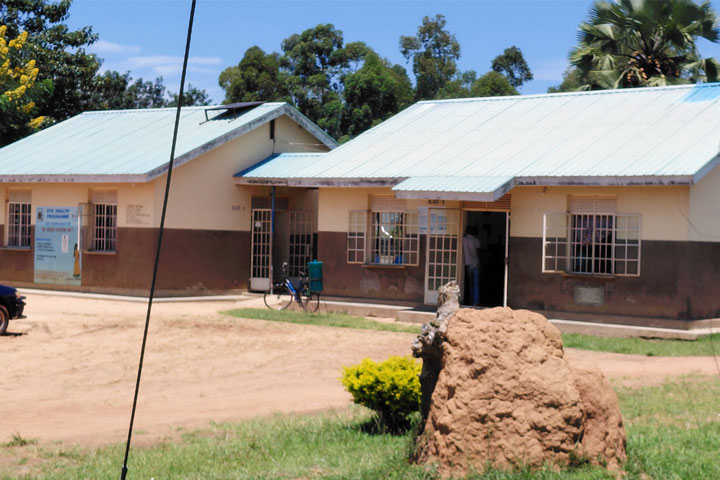
“Before PCV, we were reporting more than 20 cases of pneumococcal diseases every month and many of them were severe pneumonia. Now we see fewer than five mild pneumonia cases per month and no meningitis case at all, which is a remarkable turnaround and relief to us as doctors,” Obitre noted.
Obitre says his observations are the consequence of a strong vaccination programme, including well-trained health workers who invest energy into community sensitisation and outreach work.
High uptake, high impact in Arua
The district as a whole has seen the impact of the vaccine over the course of the past decade, says acting Arua District Health Officer Dr Eyotaru Peace Oliver.
“We have not had any meningitis outbreak since 2013, yet we are in a meningitis belt region. Most of the pneumonia cases we have in the region are mostly from unvaccinated people, and are mild – unlike before when they were severe. The vaccine has really changed the health of our children,” Dr Eyotaru told VaccinesWork.
Have you read?
Dr Eyotaru noted that Arua as a district has had strong vaccine coverage, and registered fewer than 15 deaths from pneumonia in children under five years in the five years.
She also says Arua’s geography and demographics mean that outreach vaccination – with the support of volunteer Village Health Teams – have proved crucial.
“We target parishes that are more than five kilometres away where families cannot walk to the facility. We also hold health dialogues with communities to build vaccine awareness. It has been key to sustaining uptake,” Dr Eyotaru said.
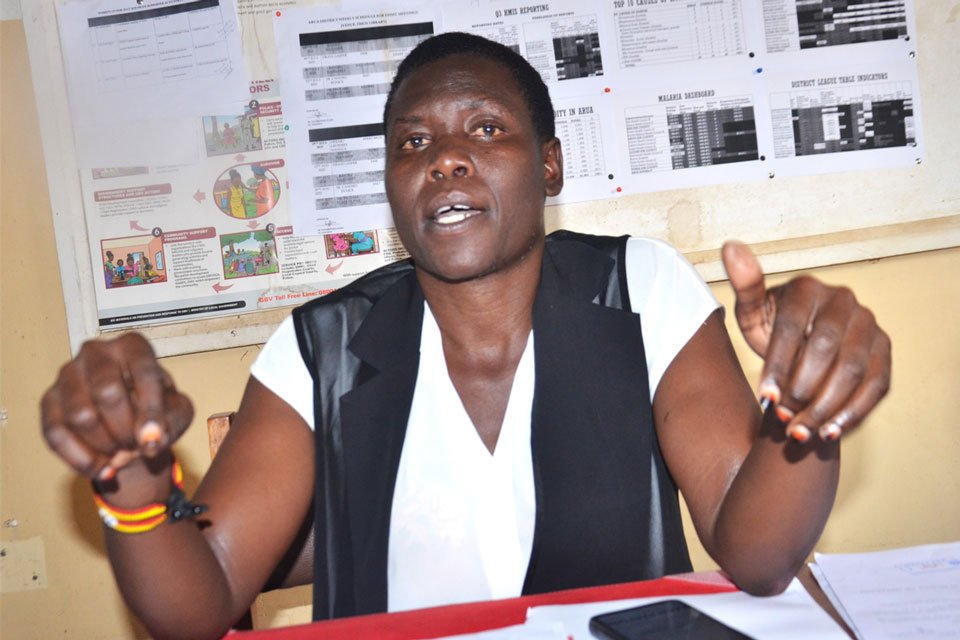
Karamoja, always hard-hit, begins to see the tide turn
In hard-hit, semi-arid Karamoja in Uganda’s north-east, meanwhile, health workers say the impact of vaccination has been tempered by the fact that as much of 85% of the population qualify as “hard-to-reach”. Still, they say, the PCV10 roll-out has made a difference.
Dr Faith Loyce Nangiro, a medical doctor working in Amudat Health Center 4, says Karamoja region has always carried a heavier burden, but they are beginning to see some improvements.
“Harsh environmental conditions such as dry, dusty winds and very cold nights leave children vulnerable to respiratory infections. And then malnutrition, which is widespread in Karamoja further weakens the immunity,” Dr Nangiro told VaccinesWork in a phone interview.
“Stunted children are much more prone to pneumonia and meningitis,” she explained. “Even with the [availability of the] vaccine, we still see outbreaks during extreme weather.”
That’s partly because coverage rates are not as high here. Dr Nangiro noted that the nomadic lifestyle of many pastoralist families means children often miss their scheduled immunisations in the region.
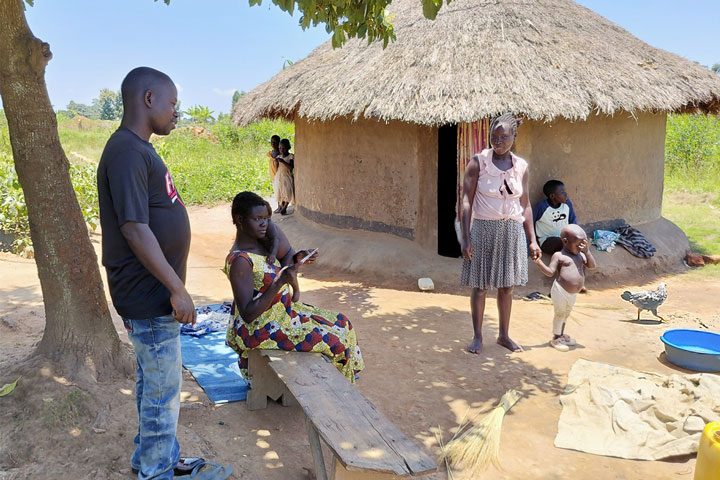
“Karamojongs often move to different regions and with their families. When communities migrate across borders, vaccination is disrupted… This is coupled with insecurity in the region, poor roads and limited health workers,” she noted.
But despite these challenges, Dr Nangiro says the benefits of the vaccine are clear – she describes observing fewer hospital admissions and deaths, to having to contend with milder cases that can be treated as outpatients. She noted that parents now notice that vaccinated children fall less sick often and that has encouraged more families to prioritise getting access to the jab.
Extending reach
As it’s done in Arua district, Nangiro says Karamoja health workers now time their outreach sessions to coincide with the pastoral migration season, so fewer children miss their recommended doses.
“We leave as early as 5am to reach migrating villages before families go out with their cattle. We also use local leaders and cultural events because we know these bring together communities,” she says.
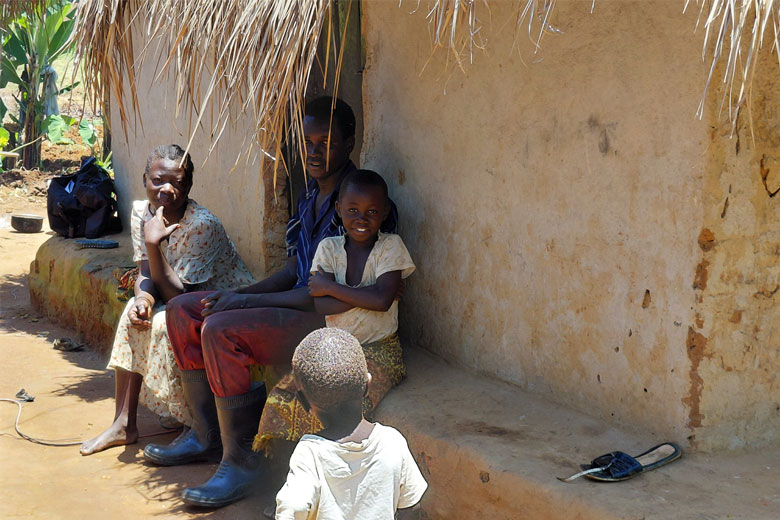
As a daughter of the land, Dr Nangiro says people trust her and she has on several times reminded them how dangerous these two deadly diseases are if not vaccinated. “PCV has made a big difference, but to fully defeat pneumonia and meningitis, we need better nutrition, stronger systems and sustained immunisation – and this what we are teaching them: this is why I can spend a week without seeing a pneumonia patient.”
“A remarkable turnaround”
Permanent Secretary of the Ugandan Ministry of Health Diana Atwine called PCV a “game-changer” in child health in Uganda. In an interview with VaccinesWork, she noted that the country has achieved 90% coverage over the last five years.
The effect of that is quantifiable. “We have seen hospital deaths fall from 24 per 100,000 children in 2014 to less than 14 per 100,000 in 2021. That is a remarkable turnaround and improvement,” Atwine said.
She noted that there have been only three meningitis outbreaks countrywide since the vaccine was launched. The last outbreak – which killed two people – saw a majority of cases in unvaccinated children, according to health ministry data.
Undervaccination is still an active concern. “Coverage in hard-to-reach areas is still as low as 50–70%, and these communities still record high disease burdens,” Atwine explained. “That’s why we are prioritising mobile outreaches, community mobilisation and investing in solar cold chain systems.”
Atwine said the Ministry is continuing to monitor the vaccine’s impact through hospital surveillance and lab tests to confirm the pathogen responsible for cases of the two deadly diseases.
“We must and will continue building trust in vaccines. Communities now see the results: fewer hospitalisations, more healthy children. That confidence must not be lost,” she underscored.
